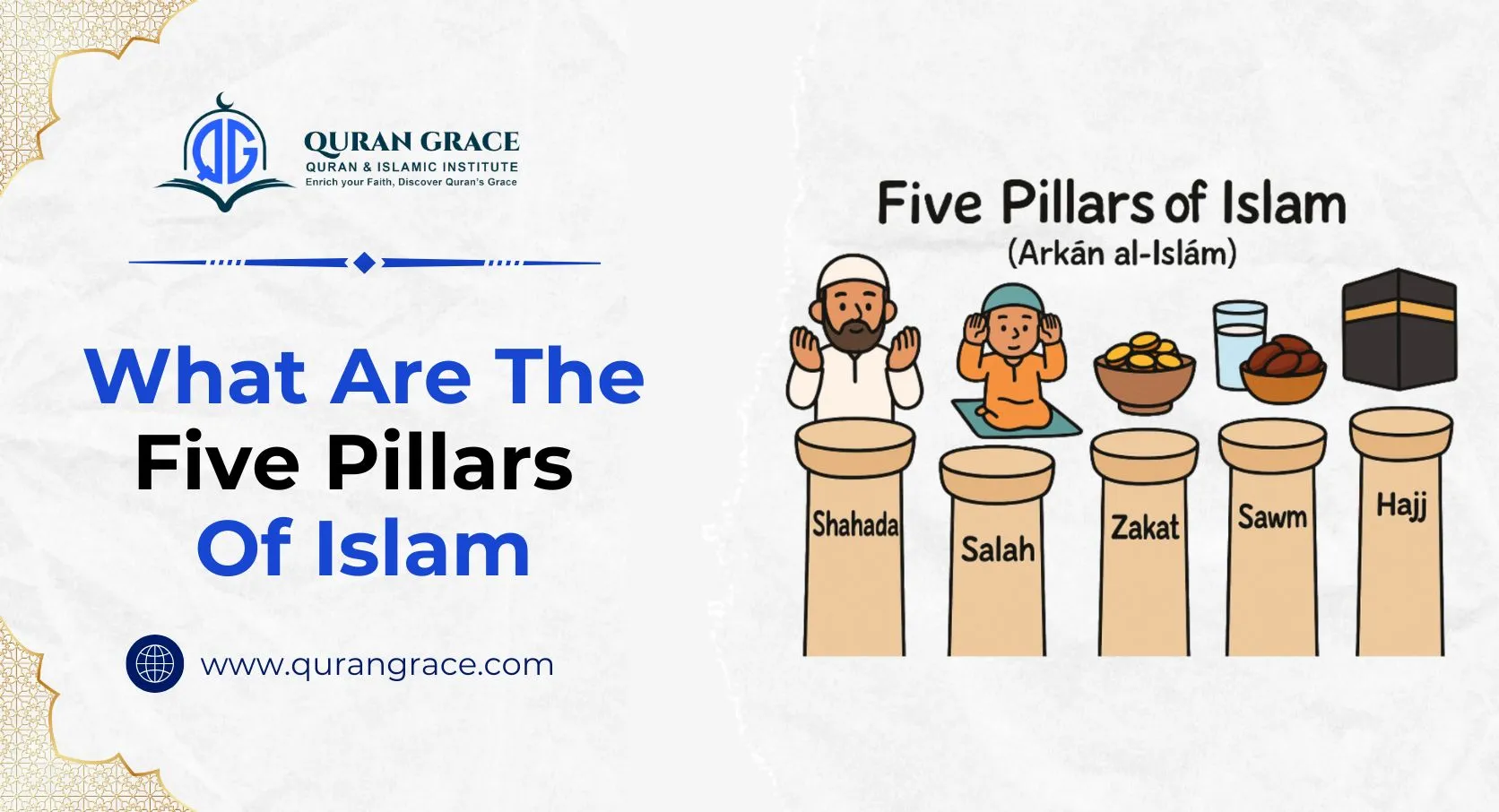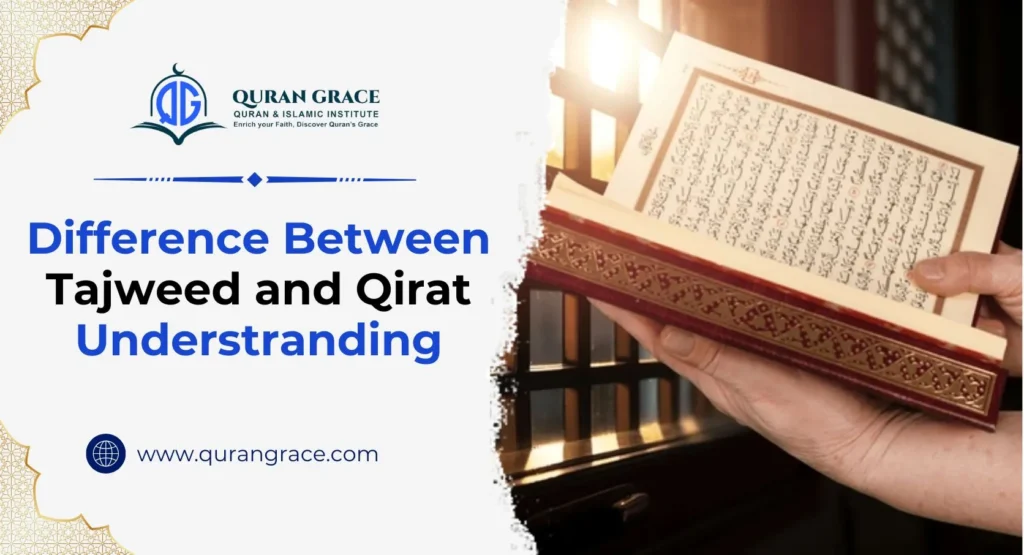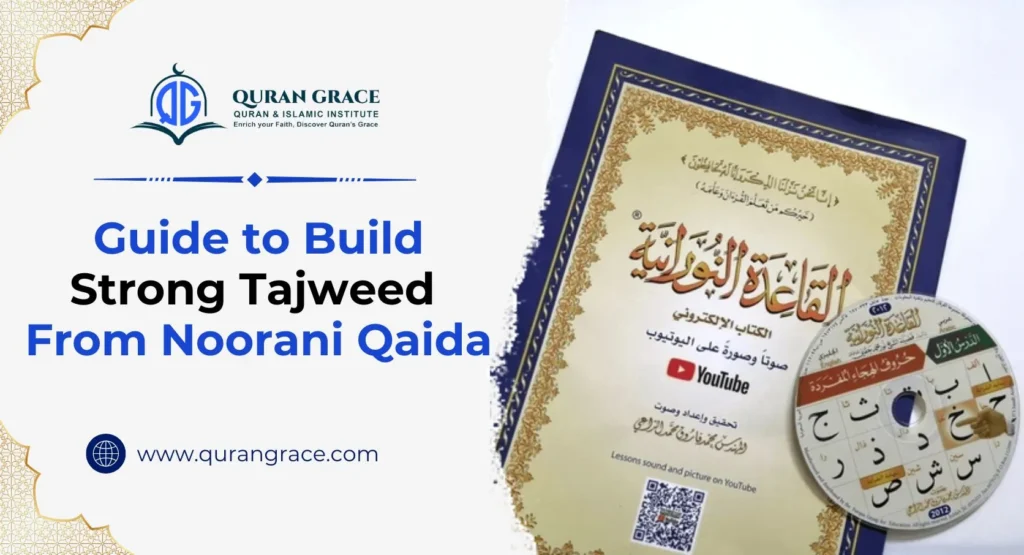Islam serves as a comprehensive framework for the lives of its followers, known as Muslims. Central to this faith are five essential acts of worship and commitment, collectively referred to as the Five Pillars of Islam (Arkan al-Islam).
These pillars are more than mere rituals; they represent fundamental responsibilities that shape a Muslim’s life, promoting discipline, fostering a sense of community, and deepening devotion. They can be viewed as the foundational cornerstones that uphold the entire structure of the Islamic faith.
Table of Contents
ToggleFive Pillars of Islam: Detailed Guide
Let’s study these 5 pillars in detail.
1. Shahada (Declaration of Faith)
The Shahada (pronounced shah-HAH-dah) is the most fundamental pillar of Islam. It is the sincere declaration of faith, spoken in Arabic:
“Ash-hadu an la ilaha illa Allah, wa ash-hadu anna Muhammadan rasul Allah.”
“I bear witness that there is no god but God (Allah), and I bear witness that Muhammad is the Messenger of God.”
It’s an affirmation of monotheism (Tawhid), the absolute oneness of God, and the acceptance of Prophet Muhammad as the final messenger chosen by God to deliver His message.
- Significance: To become a Muslim, one must recite the Shahada with genuine conviction. It is the gateway to the faith and the constant mantra that defines a Muslim’s belief system.
2. Salat (Prayer)
Salat (pronounced sah-LAHT) is the duty to perform formal, ritual prayer five times a day. These prayers are not random thoughts or spontaneous requests; they are specific movements and recitations performed at set times: dawn, noon, mid-afternoon, sunset, and night.
- What it means: The prayers act as a direct, unmediated communication with God. They serve as a spiritual check-in, reminding the individual of their Creator throughout the day and helping them maintain discipline and focus.
- Practice: Muslims face the direction of the Kaaba in Mecca, Saudi Arabia, a sacred site for Muslims. The physical acts of standing, bowing, and prostrating demonstrate humility and total submission to God.
3. Zakat (Almsgiving/Charity)
Zakat (pronounced zah-KAHT) is often misunderstood as simple charity. Still, it is a specific, obligatory payment levied on a Muslim’s annual savings and wealth (like money, gold, or business assets) that reaches a minimum threshold.
- What it means: It literally means “that which purifies.” By giving a fixed portion (usually 2.5%) of one’s wealth, Muslims are purifying the rest of their possessions from greed and reminding themselves that everything belongs to God.
- Significance: It serves as a vital system of social justice within the community. The collected funds are distributed to specific categories of people, including the poor, the needy, debtors, and travelers, ensuring the equitable redistribution of wealth.
4. Sawm (Fasting)
Sawm (pronounced sowm) is the practice of fasting during the holy month of Ramadan, the ninth month of the Islamic lunar calendar.
- What it means: For the entire month, physically able Muslims are required to abstain from food, drink, smoking, and marital relations from dawn until sunset.
- Purpose: Fasting is an exercise in self-control, spiritual reflection, and increased devotion. Crucially, it allows the wealthy and healthy to experience the hunger and thirst of the poor, fostering empathy and a greater sense of community and gratitude. The fast is broken each evening with a meal called Iftar.
5. Hajj (Pilgrimage)
Hajj (pronounced hajj) is the annual pilgrimage to the holy city of Mecca that every Muslim is financially and physically able to perform must undertake at least once in their lifetime.
It is a journey of immense spiritual significance, performed during the Islamic month of Dhu al-Hijjah. Millions of Muslims from every corner of the globe gather to perform a series of rites established by the Prophet Muhammad.
- Significance: It is the ultimate demonstration of faith, endurance, and global unity. Muslims wear simple white garments (ihram), symbolizing purity and equality before God, shedding all markers of wealth or status.
Conclusion
The Five Pillars of Islam serve as essential guidelines for Muslims to lead lives filled with purpose and devotion. These pillars not only connect each believer directly to God but also foster personal discipline and strengthen the bonds within the global Muslim community. For those interested in deepening their understanding, Quran Grace offers a comprehensive Islamic studies course on Arkan-e-Islam, focusing on the Five Pillars. We invite you to join us for a free evaluation class to explore this enriching subject.








